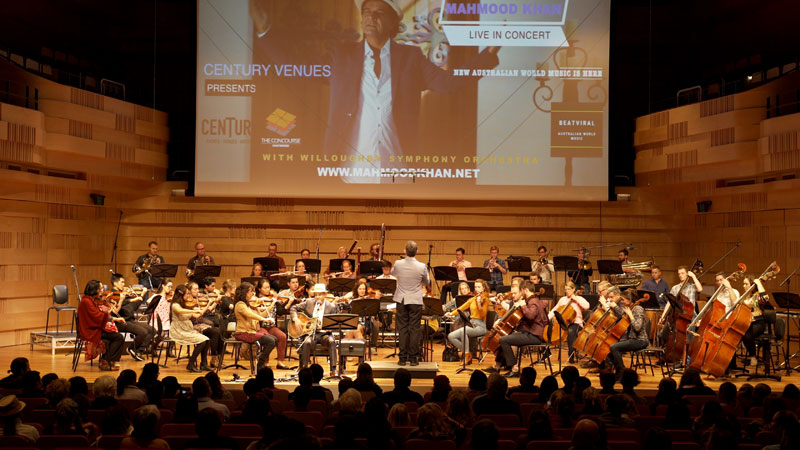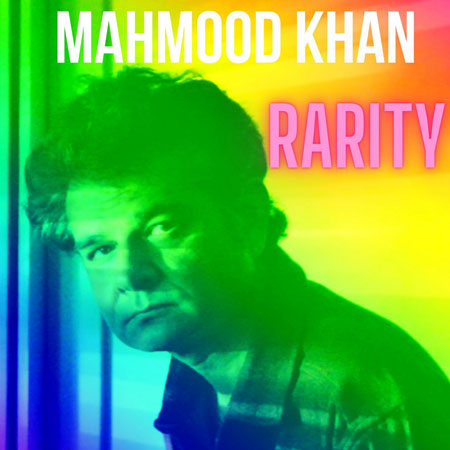Daily Times
Your right to know Sunday, May 08, 2022
Reviews
Staff Report
May 8, 2022  The last two years have been even busier for Khan. In May 2021, his jazz-inspired album, Imaginary Friend, topped the US iTunes Charts and the track Jahan Tu Nahin rocketed into the #18 on the Billboard World Music Charts. Adding to his work as a solo artist, Khan has also been involved with some notable collaborations, working alongside several famous artists, including Nusrat Fateh Ali Khan, Dick Marx, Damon Thomas, Gary Grant, Julio Hernandez, Easy E, Leon Sylvers, Ed Calle, Lee Levin, Dan Warner, Chuckii Booker, Shibani Kashyap and Nandini Srikar. This also includes the track Sender to Return, with veteran rap producer Ced Malone and rapper Cap L, which topped the charts worldwide, including #1 in Turkey, France, the UK, Germany, Norway and the Netherlands. Khan’s musical prowess and artistic sensibilities are matched by his intuition and his knack for discovering opportunities to extend his reach; as a songwriter, producer, musician and vocalist and as an advocate for helping people attain access to music. He is the brainchild of Beat Viral, a game-changing concept of producing mass music content that Mahmood calls ‘Content Farm’. He spent several years developing the production techniques and technology to create an environment where thousands of tracks are produced every month. In fact, Khan’s production work continues to play a dominant role alongside his solo career. In the last two years, under the Beat Virial umbrella, he has scored a number of hits working with virtual artists including Daisy Pano, Keira Taps, Nat Kempsy, Nok Rehman and Jen Lafantar. Another of these artists was Chel Drup whose unabashed contemporary indie-pop redo of Khan’s international hit Like the River, originally recorded live at the Sydney Opera House in 2009 and a former ARIA #1, garnered positive acclaim. Khan’s history is an intriguing narrative about the diffusive nature of music-making. He is not only a music figure with loads of runs on the board but a music production entrepreneur. He introduced music streaming platform GMLP (Great Music Licensing Platform) whose access to thousands of songs across many genres enables brand focused curated playlists. This enables unlimited content use which inverts the standard payment structure. The driving force of GMLP is the entity Beat Viral music. It’s a concept of producing mass music content which Mahmood calls ‘Content Farm’. He spent several years developing the production techniques and technology to create an environment where thousands of tracks are produced every month.
The last two years have been even busier for Khan. In May 2021, his jazz-inspired album, Imaginary Friend, topped the US iTunes Charts and the track Jahan Tu Nahin rocketed into the #18 on the Billboard World Music Charts. Adding to his work as a solo artist, Khan has also been involved with some notable collaborations, working alongside several famous artists, including Nusrat Fateh Ali Khan, Dick Marx, Damon Thomas, Gary Grant, Julio Hernandez, Easy E, Leon Sylvers, Ed Calle, Lee Levin, Dan Warner, Chuckii Booker, Shibani Kashyap and Nandini Srikar. This also includes the track Sender to Return, with veteran rap producer Ced Malone and rapper Cap L, which topped the charts worldwide, including #1 in Turkey, France, the UK, Germany, Norway and the Netherlands. Khan’s musical prowess and artistic sensibilities are matched by his intuition and his knack for discovering opportunities to extend his reach; as a songwriter, producer, musician and vocalist and as an advocate for helping people attain access to music. He is the brainchild of Beat Viral, a game-changing concept of producing mass music content that Mahmood calls ‘Content Farm’. He spent several years developing the production techniques and technology to create an environment where thousands of tracks are produced every month. In fact, Khan’s production work continues to play a dominant role alongside his solo career. In the last two years, under the Beat Virial umbrella, he has scored a number of hits working with virtual artists including Daisy Pano, Keira Taps, Nat Kempsy, Nok Rehman and Jen Lafantar. Another of these artists was Chel Drup whose unabashed contemporary indie-pop redo of Khan’s international hit Like the River, originally recorded live at the Sydney Opera House in 2009 and a former ARIA #1, garnered positive acclaim. Khan’s history is an intriguing narrative about the diffusive nature of music-making. He is not only a music figure with loads of runs on the board but a music production entrepreneur. He introduced music streaming platform GMLP (Great Music Licensing Platform) whose access to thousands of songs across many genres enables brand focused curated playlists. This enables unlimited content use which inverts the standard payment structure. The driving force of GMLP is the entity Beat Viral music. It’s a concept of producing mass music content which Mahmood calls ‘Content Farm’. He spent several years developing the production techniques and technology to create an environment where thousands of tracks are produced every month.
Chel Drup’s version of Like the River utilised technology to create a lush, shiny pop landscape featuring layered manipulated voices and sparse instrumentation. The track is quite different to the original but has its target firmly in sight.
On his first EP release for 2022 named Rarity, Mahmood Khan has recorded six new tracks that incorporate his typical enigmatic world-pop sound with a newfound sense of palpable optimism and joy. Khan has maintained his usual high level of writing craftsmanship and merged that with an even greater understanding of the fluidity of contemporary music production. Where his previous EP release Imaginary Friend explored the dynamic cadences of light jazz and mild funk, all held together by a melodic centre of retro-pop, his new one focuses on retaining pop hooks and a world music aesthetic yet marries it with a sheen and lush colouration that reaffirms the warm and good-natured style of his approach. Of course, the singer-songwriter and music producer is no stranger to the art of genre-bending, as his CV reveals, trail-blazing his way through a musical career that includes his enduring recordings with Nusrat Fateh Ali Khan, hitting the top five on the USA iTunes Jazz charts and having no less than six songs on the iTunes USA top 100 during April 2021, with his #1 Billboard Classical Crossover hit Mahmood Khan with Willoughby Symphony Orchestra.
The new EP’s opener is Automation, a world-pop tune that hovers somewhere between dance and reggae. The bass part’s quarter-note pulse sustains the rhythmic energy while Khan’s ever-present Bee Gees flavoured melodies shimmer alongside. A quirky key line generates the track’s guiding musical motif, but perhaps Khan’s finely cadenced voice gives it, and indeed the entire EP, a commanding, authoritative presence. Automation is a reliable indicator of what follows, a taster for the rest of the material, all lushly produced, streamlined yet percolating and sparkling with pure pop frisson.
The lead single, Battle Is Uphill, follows, a track with a gentle swaying poignancy running through, one that also contains a component of emotional elevation in its veins. The chorus is the main focus, Khan’s vulnerable side clearly on display, helping to give the song a subtle power and, alongside the melodic upswings, a feeling of generous affirmation.
Chal Dil Mere once again utilises Khan’s canny sense of melodic versatility, the song’s groove and general ambience beaming with a kind of doo-wop, timeless pop energy.
Despite the earnest overtones of the fourth track, Meaning of Life, it is perhaps the most robust experience on the EP. Khan has found a method of harnessing a reggaeton beat and merging that with dance-pop and fusing it all with a series of sophisticated melodic patterns that combine to initiate another round of light-filled positivity, an atmosphere of hopeful ions no doubt a distinguishing and habitual aspect of Khan’s writing and production techniques.
No Feelin When You’re Gone is another musical palimpsest-world-pop layers underpin a classic song writing approach, encircled by a floating tier of space and spare instrumentation, allowing the lyric’s direct appeal to seep its way into your senses.
The final track is Rarity, perhaps the EP’s most effortlessly fun inclusion. Khan brings a stomping pop feel to another suite of galvanising melodic embellishments. Still, this time, he comes up with what is perhaps soon to be another signature element-the mesmerising clap stop, the groove of the song laced with these and providing the ultimate rousing, party hook. Mahmood’s new collection is resplendent and quasi-ethereal; it delves into a world-pop zone and comes out shining, bursting with unexpected turns and pleasant, comforting surprises. The style never lets up, and the same can be said for the song writing quality. Most convincing about Khan’s Rarity is his recipe for successfully repositioning relatable and polished melodies, the kinds that reference the past, against a contemporary setting. Although there are organic flourishes here and there, an acoustic guitar, brass, etc., the soundscape is lustrous and in being so, pertinent. And so it’s no wonder Khan has amassed so many plaudits; this approach allows him to retain his individuality while exploring the illimitable riches of his chosen art. Mahmood Khan is a genuinely inspiring unstoppable force in contemporary world music, and Rarity is the latest manifestation of his phenomenal artistic power.
And so it’s no wonder Khan has amassed so many plaudits; this approach allows him to retain his individuality while exploring the illimitable riches of his chosen art. Mahmood Khan is a genuinely inspiring unstoppable force in contemporary world music, and Rarity is the latest manifestation of his phenomenal artistic power.
Australia retains traditional indigenous cultures dating back thousands of years and has financial resources and supporting policies in place to preserve the old and foster new growth. Australian music assets are now starting to show some genuine diversity. It is home to singer-songwriters from all over the globe Australia is constantly improving in the way it accepts immigrants into the country-how they are treated and managed by the society and the community in which they live and the access to language, culture, and integration programs when they are here, which is critically important.
As a result, Mahmood’s music has flourished in Australia and he credits this to the diverse Australian culture and its community radio and TV network which continuously supports his work. In 2019 Mahmood completed an Australian radio tour fostering personal connections with volunteers who run community radio stations. There is no such dedicated system in place for artists and singer-songwriters in Pakistan which makes Mahmood Khan’s story even more remarkable. Pakistan has no music labels, no publishers, and no entity that protects intellectual property rights. The music industry was hijacked by soft drink manufacturers years ago. These brands now use popular music as a platform to promote their products while ignoring the important artist ownership factors of originality and intellectual property and growth that are in place in the Western world to curb exploitation. Still, in the future, it’s possible that Pakistani artists with Western music industry knowledge will manifest the energy that propels transfer technology to create a legitimate and vibrant music industry. Meanwhile, in Canberra, Australia’s multicultural national capital, the performance of Sufi music is becoming more frequent. Australian Sufi music is just starting to emerge and more than anything it seems to be about respect and celebration of the cultural diversity of this continent. In 2011, the Australian Government recognised Khan as a ‘Distinguished Talent’, not only for his impact on the music industry but for a wider cultural legacy, with Khan’s contribution to the Urdu language noted as monumental and highly significant.
More Posts from this Category
More Posts from this Category
More Posts from this Category
Home
Lead Stories
Latest News
Editor’s Picks
Culture
Life & Style
Featured
Videos
Editorials
OP-EDS
Commentary
Advertise
Cartoons
Letters
Blogs
Privacy Policy
Contact
Company’s Financials
Investor Information
Terms & Conditions
Facebook
Twitter
Instagram
Youtube<!-  ->
->
Copyright © 2022 Daily Times Website Developed By Daily Times Developers